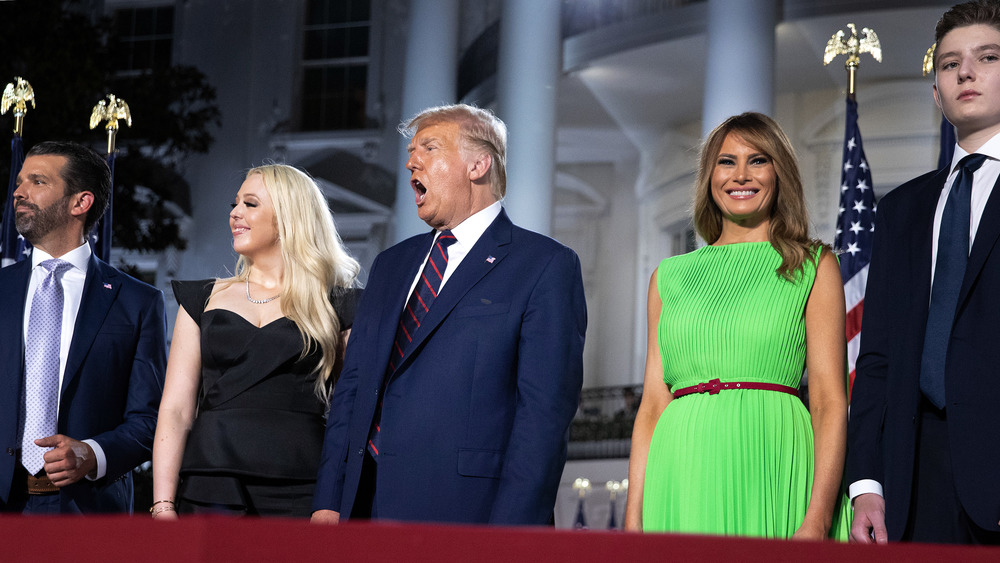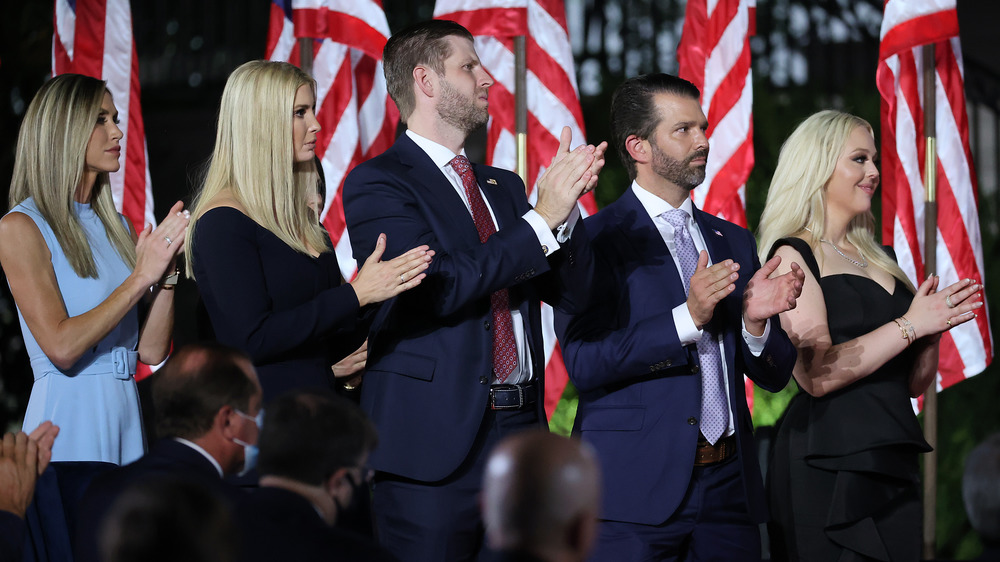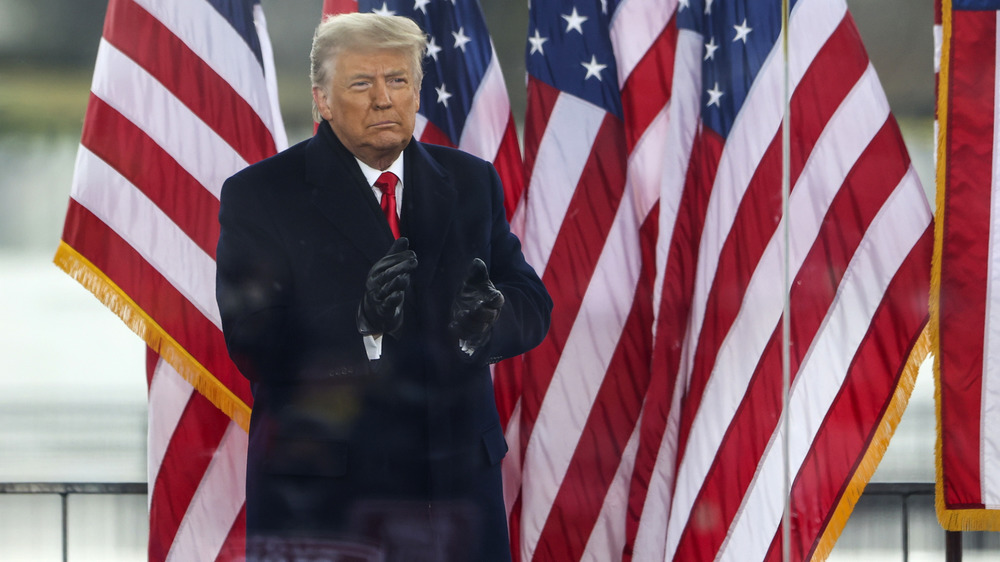The Real Reason Donald Trump Didn't Pardon His Children
Soon-to-be former President Donald Trump has made it clear that one of the most coveted powers of his government office is the ability to grant clemency. He hasn't used this power as often as other former presidents did during their terms, but instead held onto it and reserved it for those he seemed to feel some sort of personal obligation to or have personal feelings about. Out of the minuscule number of pardons and clemency petitions Trump has granted, at least a handful of them have been for questionable individuals convicted of awful crimes. On his last day in office, Trump pardoned his former chief strategist, Steve Bannon, according to The Guardian, who was charged with scamming supporters to raise money for the infamous border wall. He's also pardoned Joe Arpaio, a former sheriff who was sentenced for contempt due to racial profiling, according to CNN, as well as others who'd been charged with war crimes.
According to CNN, Trump has been talking about giving preemptive pardons to a number of lawmakers and others as a "just in case" move before he leaves office. Of those he thinks may be "unfairly" targeted by his opposition are his children. But, it turns out, his children weren't included on his final list of those granted clemency. Here's why.
What about Trump's children?
President Trump has been discussing the potential to pardon his adult children — Donald Trump Jr., Eric Trump, and Ivanka Trump — with his advisers since at least last year, according to The New York Times, but as Forbes points out, he ultimately didn't go through with it. So far, each time one of his children came under investigation, such as Trump Jr. and the Russia-election issue, charges were never filed. That was during the Trump administration, of course, and the president fears that his children might be among those who are unfairly targeted after President-elect Joe Biden is sworn into office.
Though there aren't currently any federal charges against the Trump children that their father would have the ability to pardon, he must believe there could be in the future. Like, say, for Trump Jr. and his wife speaking at the rally-turned-deadly-overrun of the U.S. Capitol. If Trump seems to fear this so much, then why weren't his children included with the recent batch of clemency orders? To put it simply, his advisers didn't think it was a smart move. To put it less simply, well...
It's not a good idea
One of the biggest drawbacks of preemptively pardoning his children when there were no charges against them was the perception. It would look to those on the outside like an admission of guilt, and Trump's advisers pointed this out to him, according to CNN. If he would have gone through with the familial pardons, he also would've had to name specific charges from which to pardon those kids, and for nothing else, the optics would've been terrible, but there was more potential fall out than ruined face.
Throwing pardons around all willy-nilly could've angered those Senate Republicans who are his last hope to avoid impeachment, and with it, a loss of all those fancy benefits one gets for being a former president. He's already on shaky ground with a good portion of the party following the January 6 riot, and it wouldn't have been the smartest idea to rile the nay-sayers up more than necessary. Furthermore, as The New York Times points out, pardons aren't for crimes that haven't already been committed. No president in history has tried to issue a "get out of jail free" card. This isn't Monopoly. Doing so would've been legally questionable, probably ended up in the Supreme Court, and most likely have gotten shot down. If that happened after detailing the crimes for which their daddy was pardoning them, his children could've ended up on charges that may have otherwise been blown to the wind.


